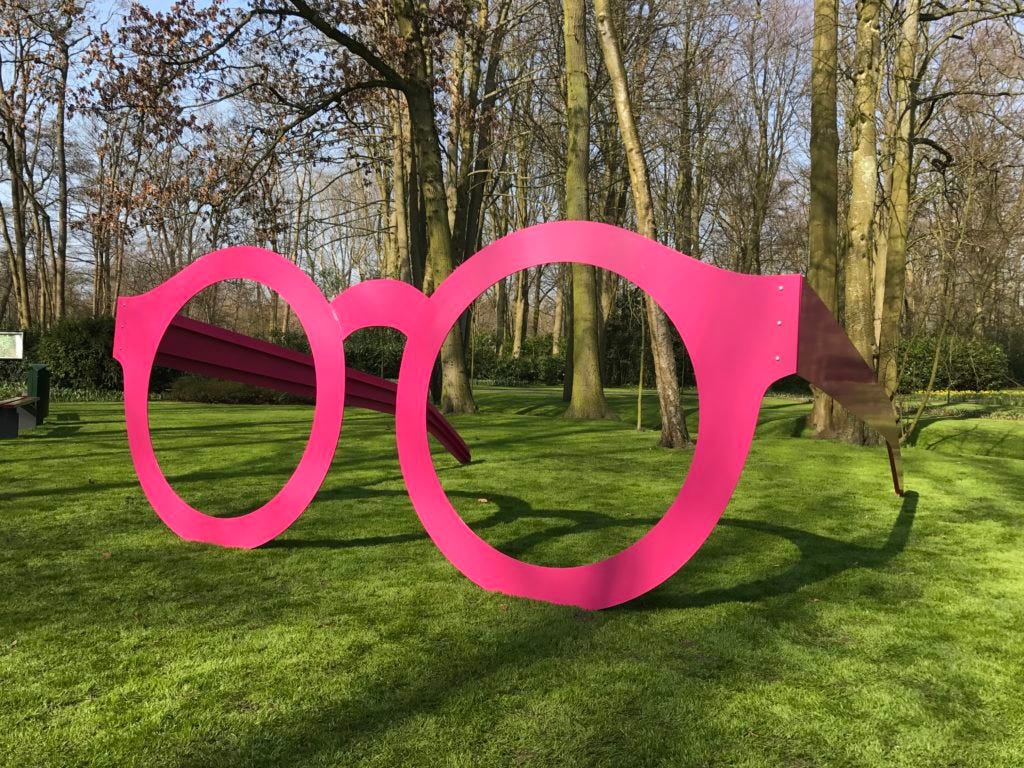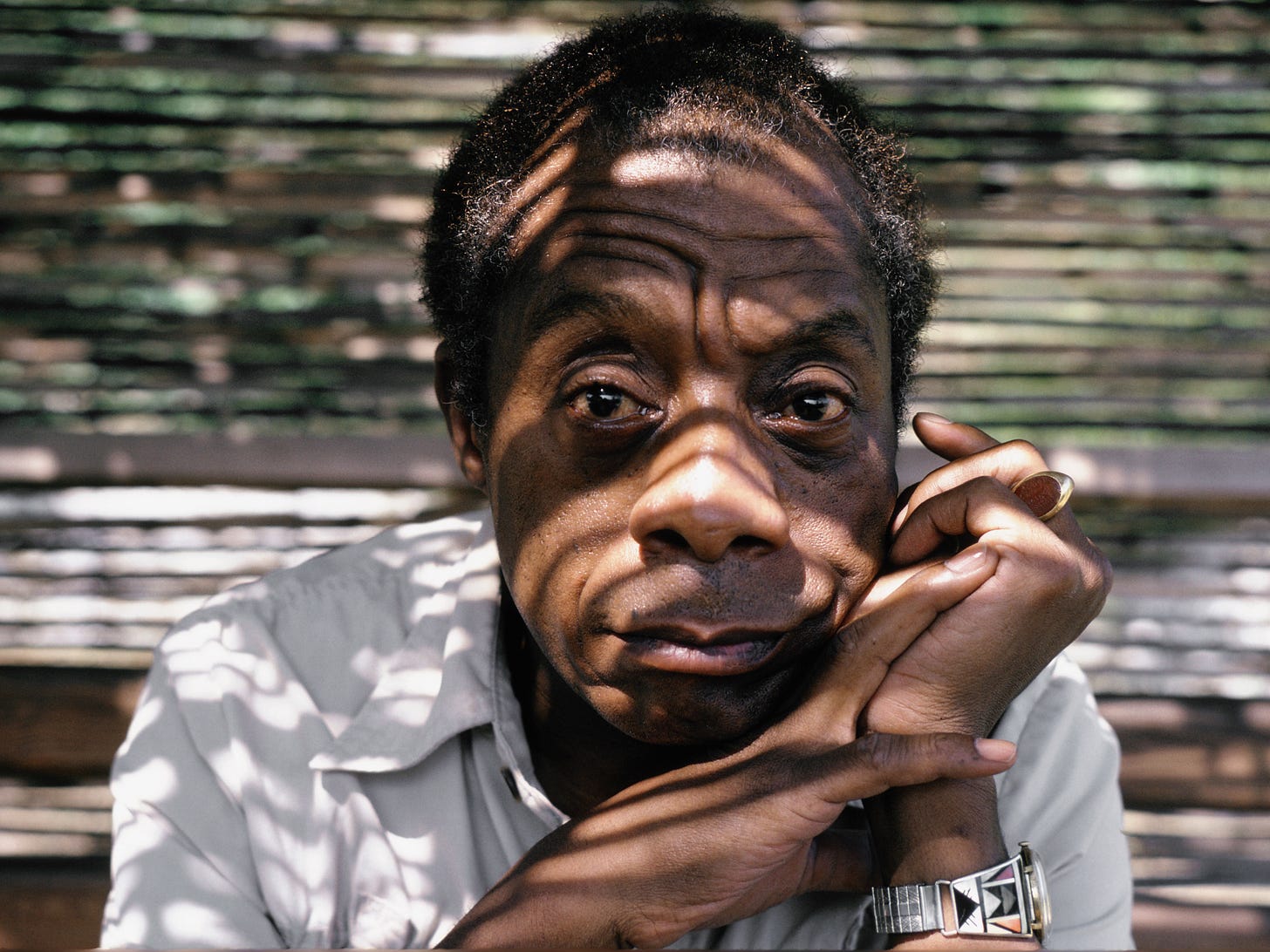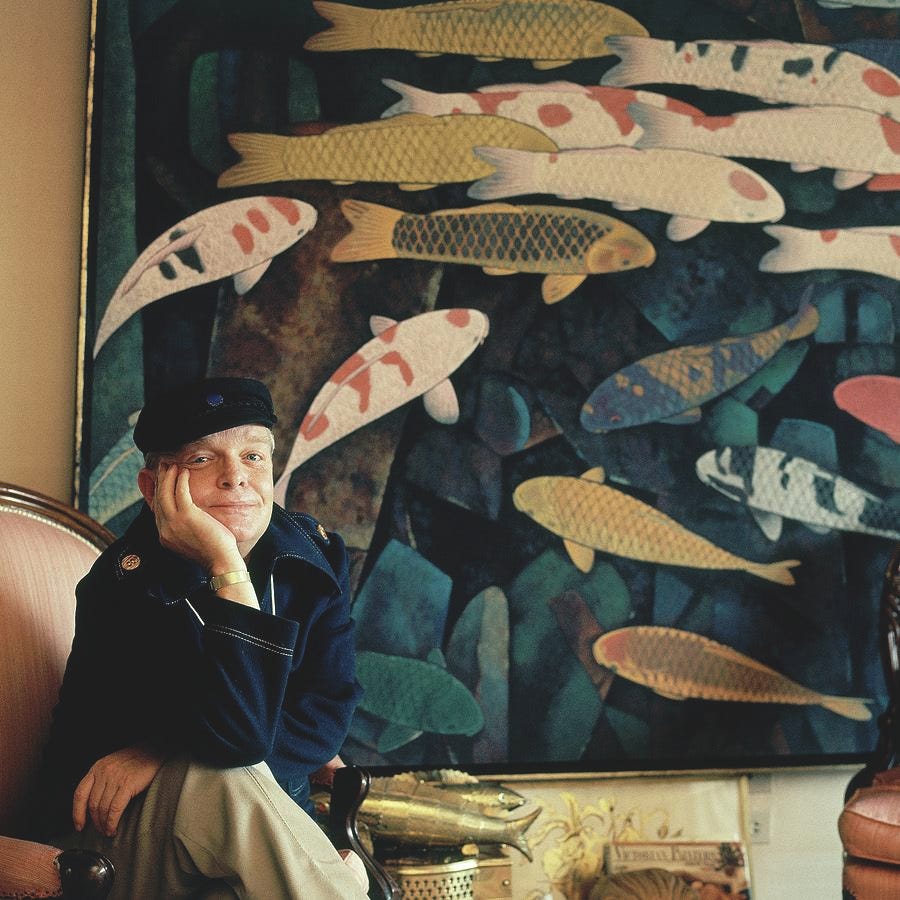The Third Lesson 2024 Taught Me Was “Seeing Is Believing”
A Black Eyed Review of FX’s The Feud: Capote vs.The Swans
A Recap of Lessons One and Two:
Lesson One: You never know what’s gonna happen or when something will happen.
Lesson Two: Everybody wants love.
Daniella Rubinovitz. La Vie En Rose | Through Rose Colored Glasses
Here’s an audio reading of this Black Eyed Review. Enjoy!
On a beautiful crisp and clear and rare autumn day in Austin, Texas, a color storm of blood orange and pumpkin and curry spiced leaves pummeled my SUV’s windshield as it skipped down winding roads during the carpool ride home. We, the three sullen eighth graders and myself, were caught up in a magical bubble of seasonal deciduous joy. No one could’ve convinced me that the Ford Explorer hadn’t shapeshifted into a cornucopia carriage. It was only October but Thanksgiving had seized my midwestern heart and I cried out, “Oh, look how beautiful it is. Wow, look at the leaves. I’ve never seen leaves so beautiful in Austin.”
Overcome, I slowed the cornucopia to a crawl, wanting to take it all in, absorb the autumnal shower cascading across the sky. I wanted to share the glory of the moment. I needed to make this Hallmark movie, knit and plaid, pumpkin-spice warmth tangible. Feeling emboldened, I reached over to hold the hand of my child who, of course, kept both hands on their phone, their face possessed by the screen’s glow. They said, “Mom, take off your sunglasses.” I played along and slid my pink hued lenses to the top of my head and beheld the shit-colored leaves dropping from the trees and plopping onto the windshield like pigeon-droppings. I’d learned the third lesson 2024 taught me almost ten years ago on that carpool ride home: Yes, seeing is believing, but you can’t always trust what you see.
I am proud to be an epicurean of delight and a connoisseur of enchantment. I’ve paid my dues to enter this club of zealous joy-seekers. Joy-seekers are like the polar plungers who jump into January’s frigid waters, except we dive bare-assed into bliss, our spirits and emotions swimming naked. We convince ourselves that whatever the consequences are, they’ll be worth it. Nothing could keep us from bellyflopping right into each and every tingly, perfect, magical wave of wonder drifting before us. But sometimes I’m disgusted by my lack of restraint. Do you know that marshmallow experiment researchers do with children? They leave the kid in a room with a pristine, fresh-out-the-bag marshmallow and tell them they’re going to leave, but if they don’t eat the marshmallow while they’re gone, they’ll give them a second marshmallow when they return. If I was a kid in that experiment, I promise you, I’d eat the marshmallow before the researchers even had a chance to tell me the premise of the game. Who needs to wait for permission to eat a marshmallow? And for godsakes, what kind of person tortures a kid like that? The kid sees one marshmallow before them, the second one is only an ideal, an apparition, a possible-maybe because adults are tricky. They lie all the time, change the rules, add conditions. Who’s to say there will definitely be a second marshmallow? Who’s to say they’ll definitely come back? The joy of one marshmallow is guaranteed. I wish I could be the kind of heart that waits, but if you can’t always trust what you see, you certainly can’t trust what you don’t.
The problem with what we see and what we believe is the wildness of our desires. Our hearts are so completely biased towards our desires, we can’t see past them.
My mother once swore a man she’d met at a psychiatric facility was the spitting image of Sidney Poitier, and because she saw him as the famed, suave and very debonair legend, she couldn’t see the effects of his severe schizophrenia. She saw a lovely, dark-skinned man who kinda (at least if you squinted) looked a tiny bit like Mr. Poitier. It wasn’t until she saw him bounding on all fours and barking like a dog around her mother’s 90th birthday party that the sunglasses slid off and she could see the true, harsh colors before her. Maybe you and I haven’t made the same mistake my mother made, but I did think my high school boyfriend sang just like Prince because he was the lead singer of our youth choir, and he wore eyeliner and a purple paisley patterned tuxedo jacket to prom. But the boy couldn’t carry a tune, let alone a falsetto – but seeing is believing, right?
We believe what we desire to see. This truth came to me when I watched the fifth episode of FX’s Feud: Capote vs. The Swans. I desire to see beauty and splendor but if I’m wise, when I feel that flutter of delight rising like a bright helium balloon in my chest, I should immediately ask myself if what I’m seeing is real or just the trick of rose-colored glasses. I should wait patiently for more information before I devour the marshmallow.
The story of Capote vs. The Swans centers on a feud the infamous writer drank his way through after writing a salacious tell-all about the secret lives of New York socialites. The tagline of the show is “The Original Housewives”. At the time of what appears to be Capote’s lowest bottom, the writer turned social pariah spends a light-filled day with James Baldwin as his knight in shining armor, his magical negro come to rescue him by shaking some gotdamn sense into him. The episode is exquisite, sumptuous, marvelously dreamy, and Chris Chalk, the actor who plays Baldwin, is resplendent. I watched the first few scenes swept up in the rapture of dialogue between Capote and Baldwin over lunch at the Cote de Basque. My mouth watered in want of the five-star plated racial reckoning the episode served me, right down to Baldwin’s manicured, elegant Black hand placing his Diner’s Club card down on the white tablecloth.
But suddenly, I remembered Baldwin was in Paris during Capote’s walk of shame. Not only was he in Paris, but he was indifferent to Capote. The more the shingles fell from my eyes, the harder I found it to believe that a self-exiled Blacker the Berry, Black is Beautiful, Black and Proud man like Baldwin would hop on a plane to rescue a White author who’d been somewhat disparaging of his work. I found it equally hard to believe that Baldwin, who’d written about race for a living, would want or need or waste his time asking Capote his views on class and Whiteness. Really? Why would Baldwin, a Black boy born in Harlem who attended a predominately White and Jewish high school, need to hear Capote’s take on privilege? Why would Baldwin, who experienced his own depression, addiction and mental breakdowns, care for Capote’s self-care more than his own? Why would Baldwin, who’d been invited on countless talk shows to discuss race, need to tap into Capote’s experience to understand the hierarchy of the status quo and pecking order of White nobility? Baldwin was already aware of his rung on the ladder. What the show gets wrong is this: had Baldwin run to Capote’s side, he would’ve been the one—not Capote—to slip and fall.
I took off my pink, joy-tinted lenses and watched the rest of the show seeing it for what it was: a lie, bright and beautiful as the lie of that autumn day back in Austin. It was a giant marshmallow - the hope that this one confection of racial harmony would lead to many more to come. And American viewers gobbled it up because we so dearly desire to be a country that’s better than we truly are. We want to believe more than anything that despite the racial riots rampant throughout the 60s and 70s – riots so violent they drove Baldwin to flee to France, a single day between two bright literary stars might have fixed it all. The fact that Capote cared more about receiving invitations to parties thrown by White socialites than ones from Civil Rights icons, matters not.
Most folks will say it’s just a show, right? There’s no harm in suspending our disbelief in order to feel the warm glow of the narrative’s spell being cast upon us. But folks, if seeing is believing, shouldn’t we test and make sure what we see is real?
Doesn’t it matter that Capote and Baldwin were never friends?
Doesn’t it matter that Baldwin didn’t need Capote’s words to tell him about the true nature of America, but Capote most certainly needed Baldwin’s?
Doesn’t it matter that if, during his exile, Baldwin came back to America for a single day, Capote would’ve been the last person on his mind to go attend to?
I know it turns out the whole episode was just Capote having a drugged and drunken dream. But don’t the reasons why such a dream sequence was needed matter? Doesn’t it matter that in real life, Truman’s feud with the swans didn’t change the narrative for a single Black person living during that time, but Baldwin’s exile and subsequent return did and still does?
But here’s my biggest reason for testing our vision and making sure that what we see on the screen isn’t distorted by an astigmatism shaped by our desires: my in-laws and White Christians like them.









